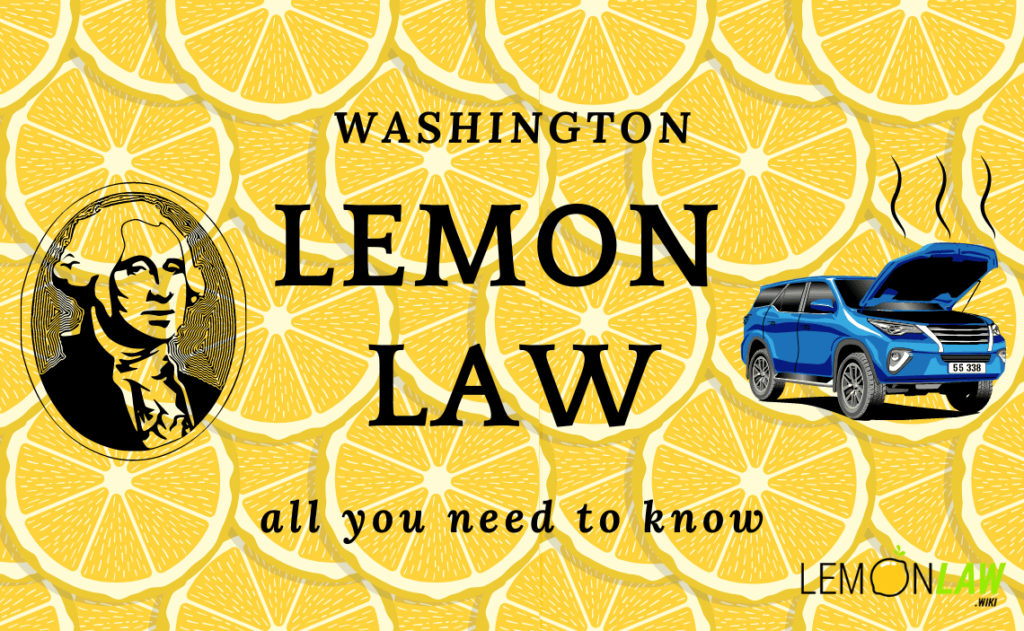When purchasing a vehicle in Washington D.C., the last thing you expect is to end up with a “lemon.” However, it’s essential to understand the rights and protections available to you under the D.C. Lemon Law. This comprehensive guide will outline your rights, the process for filing a claim, and how to ensure you’re protected when dealing with a defective vehicle in the nation’s capital.
Defining a Lemon in Washington D.C.
In Washington D.C., a “lemon” is defined as a new motor vehicle that has a nonconformity covered by the manufacturer’s warranty that substantially impairs the use, value, or safety of the vehicle. This nonconformity must be reported to the manufacturer or its authorized dealer within 18 months of the vehicle’s delivery date or the first 18,000 miles, whichever occurs first.
Eligibility Criteria for the D.C. Lemon Law
To be eligible for protection under the D.C. Lemon Law, your vehicle must meet the following criteria:
- The vehicle must be new and purchased or leased from a D.C. authorized dealer.
- The vehicle must be primarily for personal, family, or household use.
- The vehicle must have a nonconformity covered by the manufacturer’s warranty.

Understanding the Repair Process
Once you’ve identified a nonconformity in your vehicle, it’s crucial to follow the proper repair process. Here are the steps to take:
- Report the issue to the manufacturer or its authorized dealer within the specified 18-month/18,000-mile period.
- Allow a reasonable number of repair attempts. In Washington D.C., this is defined as four attempts for the same nonconformity or the vehicle being out of service for a total of 30 days due to nonconformities.
- If the nonconformity persists after the repair attempts, you may have a valid lemon law claim.
Initiating a Lemon Law Claim
If your vehicle meets the eligibility criteria and the nonconformity persists after a reasonable number of repair attempts, you can initiate a lemon law claim. Follow these steps:
- Notify the manufacturer in writing, detailing the nonconformity and your intent to file a claim.
- Allow the manufacturer one final opportunity to repair the nonconformity within 10 days of receiving your written notice.
- If the nonconformity still persists, you may proceed with your lemon law claim.
Understanding the Manufacturer’s Obligations
Under the D.C. Lemon Law, manufacturers are required to do the following:
- Provide a refund or replacement vehicle if they are unable to repair the nonconformity after a reasonable number of attempts.
- If a refund is chosen, reimburse the full purchase price, minus a reasonable allowance for use, along with collateral and incidental charges.
- If a replacement is chosen, provide a comparable new vehicle, with any adjustments for mileage or improvements made to the original vehicle.
Exploring Dispute Resolution Options
If you and the manufacturer cannot agree on a resolution, you have several dispute resolution options:
- Engage in informal dispute settlement procedures if the manufacturer has established such a process.
- File a claim with the D.C. Department of Consumer and Regulatory Affairs (DCRA), which can provide assistance with mediation or arbitration.
- Pursue legal action in court.
Understanding the Statute of Limitations
In Washington D.C., it is essential to be aware of the statute of limitations when filing a lemon law claim. You must file a claim within three years of the date you first reported the nonconformity to the manufacturer or its authorized dealer. Failure to file within this time frame may result in the loss of your rights under the D.C. Lemon Law.
Protecting Yourself with Proper Documentation
To ensure the success of your lemon law claim, it’s crucial to keep thorough records and documentation of your vehicle’s nonconformity and repair attempts. This documentation should include:
- A copy of your vehicle’s purchase or lease agreement.
- A record of all repair orders, including dates, work performed, and any parts replaced.
- Any correspondence between you and the manufacturer or authorized dealer related to the nonconformity.
- A log of the days your vehicle was out of service due to nonconformities.
Having this documentation readily available will help streamline the dispute resolution process and increase the likelihood of a favorable outcome.
Additional Resources and Assistance
If you need further assistance or guidance regarding your lemon law claim in Washington D.C., you can consult the following resources:
- The D.C. Department of Consumer and Regulatory Affairs (DCRA) – The DCRA can provide information and assistance with your lemon law claim, including mediation and arbitration services.
- The Better Business Bureau (BBB) Auto Line – The BBB Auto Line is a free service that helps consumers resolve disputes with vehicle manufacturers, including lemon law claims.
- Legal Aid Services – You may be eligible for free or low-cost legal assistance if you need help navigating the lemon law process.
In conclusion, the D.C. Lemon Law provides valuable protection for consumers who have purchased or leased a new vehicle with a nonconformity covered by the manufacturer’s warranty. By understanding the eligibility criteria, following the proper repair process, and keeping thorough documentation, you can successfully navigate the lemon law process and ensure your rights are protected.
